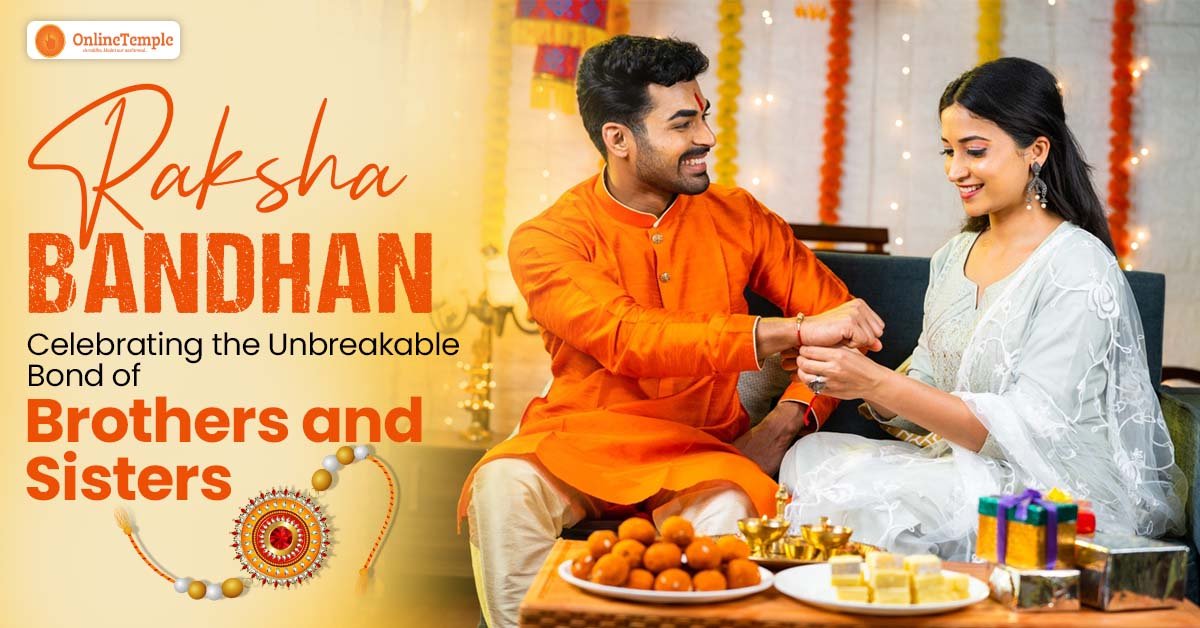Raksha Bandhan, also known as Rakhi. This is a beautiful festival celebrated in India to honor the special bond between brothers and sisters. The Festival is filled with love and a sense of community. The upcoming festival of Rakhi is a significant celebration in India.
Every festival has its own significance. However, this festival honors the bond between siblings. There are many associated Rakhi with the exchange of gifts and sweets. Its essence contributes to the celebration of love and brotherhood. The online puja services will give you a clear perspective on the Hindu mythology stories and basic puja rituals. Alternatively, there are some best online puja services where you learn about tradition and mythological significance. This traditional festival falls in Shravan Month, the full moon. It is a time for families to come together.
Rituals and Traditions
The preparations for Rakhi begin well in advance. On this day, families buy new clothes for the special day. This day is quite special, sisters tie a sacred thread, known as the ‘Rakhi.’ This is tied around the wrists of their brothers. This act symbolizes the sister’s love and her brother’s well-being and success. After tying the Rakhi, a traditional Aarti is performed using a thali. It also includes Diya, sweets, and other auspicious items. The sister then applies a red tilak on her brother’s forehead. This further signifies the bond between them.
The exchange of sweets between siblings is a loving sign of ritual. Afterward, the entire family comes together to enjoy each other’s company. These bonds between brother and sister can’t be broken with such long distances. In case of distance, sisters send Rakhi threads to their brothers via post. It also includes a heartfelt wish for their well-being.
Mythology and Cultural Significance
Meanwhile, Rakhi has its roots in Hinduism. Its significance crosses religious boundaries. Not only that, it reaches out to people of various cultures and faiths. Jainism and Sikhism have their own variations of Rakhi. In Jainism, priests tie Rakhi to devotees. On the other hand, in Sikhism, the festival is known as ‘Rakhardi’ or ‘Rakhari’. However, People should explore the Special pujas online booking to gain a new perspective on Hindu tradition, mythology, and customs.
Rakhi originates from several Hindu mythological stories. One such legend tells the tale of Lord Indra and his wife Sach. Here, Sachi tied a holy cotton thread on Indra’s wrist. She is all for his protection. In another mythological account, Goddess Laxmi tied a Rakhi to Demon King Bali. His return granted her a wish. Additionally, the Mahabharata narrates instances of Rakhi. Here, Draupadi is tied to Lord Krishna and by Kunti to her grandson Abhimanyu.
Fun Facts
- In certain parts of India, Raksha Bandhan is often called “Kajari Purnima.” Farmers gather during this celebration to honor the land. They ask for blessings for a bountiful harvest.
- In Maharashtra, the festival is known as “Nariyal Purnima.” In addition, fishermen offer coconuts into the sea to seek protection and blessings.
- Rakhi is more than just a Hindu tradition. People from all religions and communities across India celebrate the festival with equal passion.
In today’s context, Rakhi holds a timeless significance. It symbolizes the enduring bond of love and protection between siblings and friends. It serves as a reminder to cherish our values and compassion, unity, and solidarity. Rakhi is truly a festival that provides the spirit of love and togetherness. It serves as a beautiful reminder of the relationships in our lives. However, the importance of sticking with each other through thick and thin means Finally, book online Puja for home at an online temple for your Puja ritual, proper chanting mantras, and most importantly, a path to divine blessing.
Also Read: Varalakshmi Vratam 2024: Rituals and Significance

